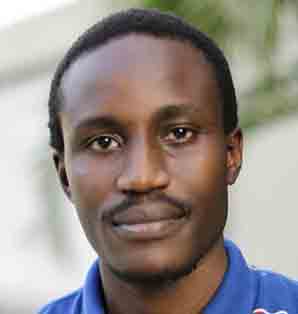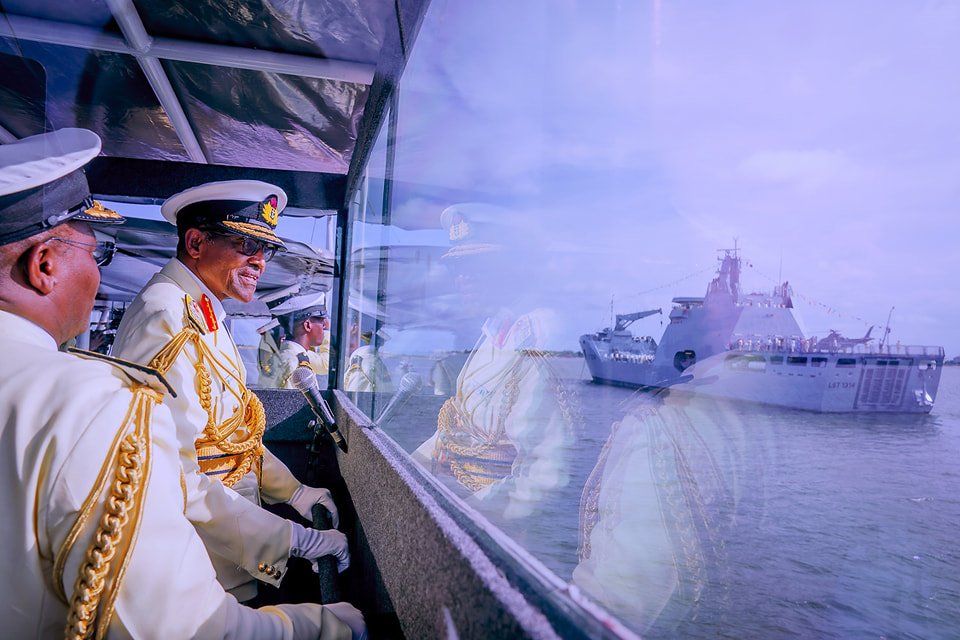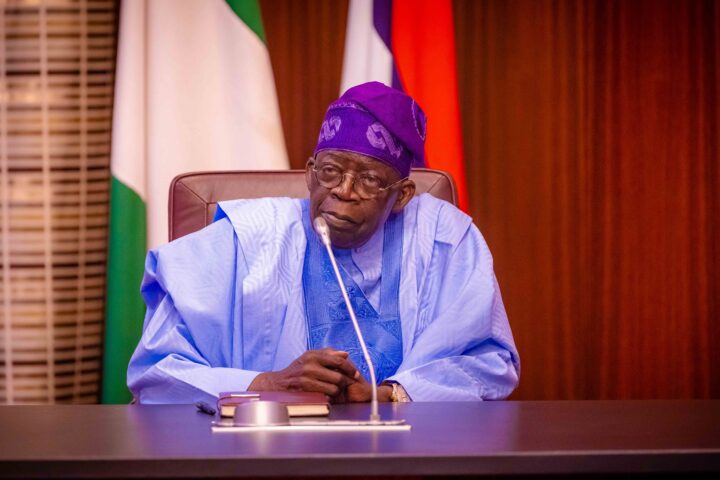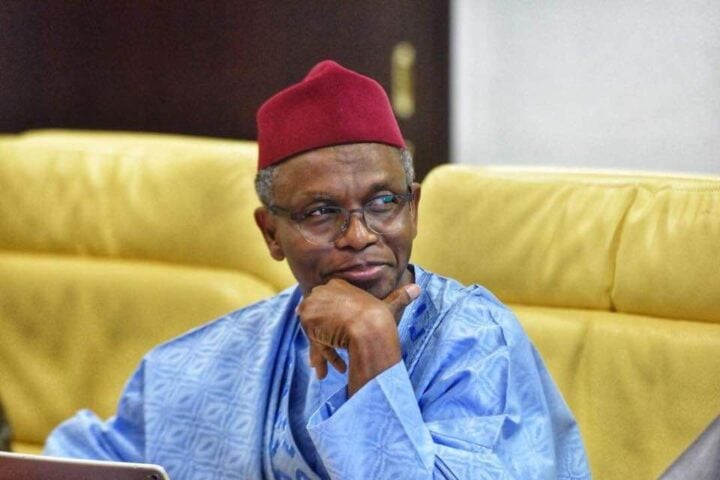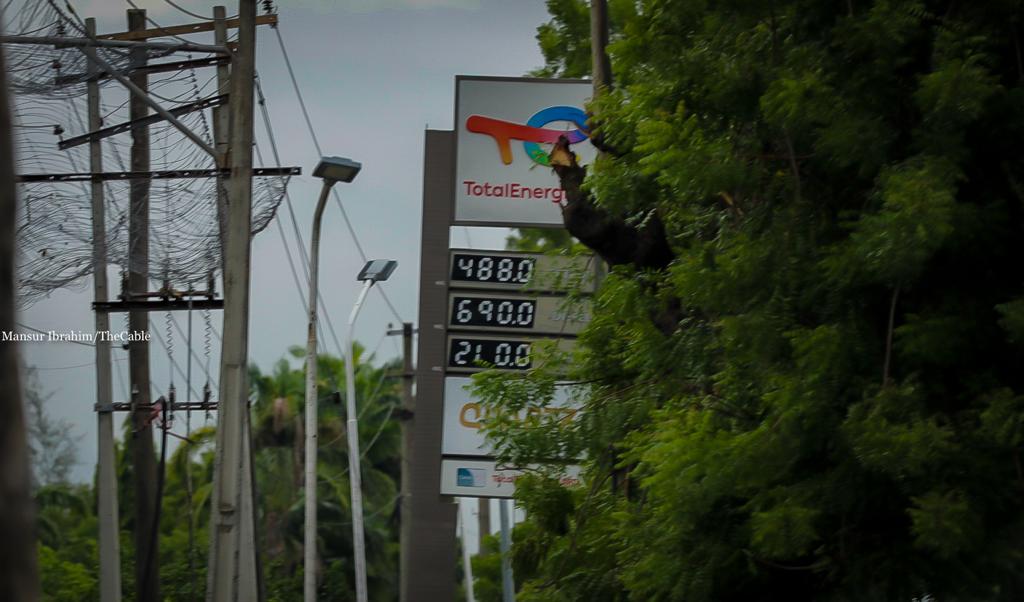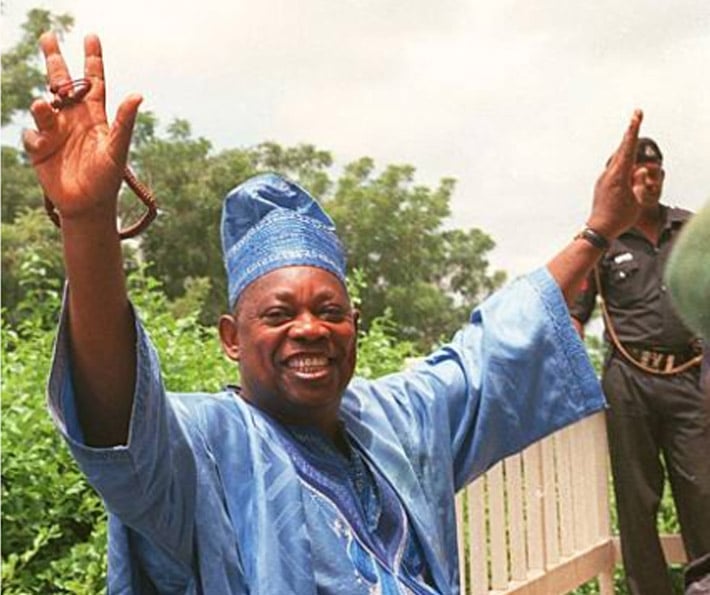In his final weeks in office, former President Muhammadu Buhari played his Commander-in-Chief role to the hilt, attending the Trooping and Presentation of Colours Parade of the Nigerian Army, the Nigerian Navy’s Presidential Fleet Review, and a Regimental Dinner hosted in his honour by the Defence Headquarters.
At each event, he dressed in ceremonial military uniform, appearing as a Field Marshal, Admiral of the Fleet, and Marshal of the Air Force, respectively. These events were a fitting culmination of eight years as Commander-in-Chief of the Armed Forces of the Federal Republic of Nigeria.
Eight years that saw the biggest investment by any Administration in almost forty years. For the Nigerian Navy, the Buhari scorecard includes twenty Capital Ships, and more than 300 other platforms, including locally-built ones: Riverine Patrol Boats, Rigid Hall Inflatable Boats (RHIBs), River Town Boats, Inshore Patrol Craft, Barges, and many more.
In July 2021, the ‘Falcon Eye Alignment’, the Nigerian Navy’s state-of-the-art Maritime Surveillance and Intelligence System, was commissioned. Complementing this is the new Integrated National Security & Waterways Protection Infrastructure’, also known as the “Deep Blue Project”, spearheaded by NIMASA, and operated in partnership with the Navy and the Air Force.
Advertisement
Nigeria’s newest Warship, NNS KADA, was delivered in May 2022, a year after the arrival of NNS LANA, a brand-new Offshore Hydrographic Survey Vessel. A few months after delivery, in August 2022, NNS KADA saw its first operation: deployment to Guinea Bissau, where it conveyed Nigerian troops and materiel to support the ECOWAS Stabilization Force there. It was also placed on standby when the crisis in Sudan broke out, its capacity to transport up to a thousand persons making it useful as a potential backup to the planned air evacuations.
On May 21, 2023, the Chief of Naval Staff announced the receipt of Presidential approval for the modernization (“refit/refurbishment/remodeling”) of its 41-year-old Flagship, the frigate, NNS ARADU. Now, two weeks later, the Navy has proceeded to sign an agreement with Dearsan Shipyard of Turkey to implement this.
The Nigerian Navy has in recent years also launched new Bases in Borno (Lake Chad), Imo (Lake Oguta), Lagos (Lekki-Epe) and Kano, as well as codified and documented the Naval Doctrine for the first time in its history. In January 2023, it hosted the annual Exercise Obangame Express, the largest multinational maritime exercise in Western and Central Africa, and is currently leading the transnational effort to establish and operationalize a Gulf of Guinea Maritime Task Force.
Advertisement
For the Nigerian Army, the Buhari scorecard includes hundreds of MRAPS, custom-built VT-4 battle tanks, ST-1 light tanks, SH-5 artillery guns, Armoured Repair and Recovery Vehicles (ARRV) / Mine Sweepers, Infantry fighting Vehicles, drones, and other equipment.
The Army also established two new Divisions (6-Division in Port Harcourt and 8-Division, Sokoto), the Land Forces Simulation Center Nigeria (LFSCN), and the Nigerian Army Cyber Warfare Command, and a Nigerian Army Cyber Warfare School. A Nigerian Army Aviation Unit has been created and is being operationalized, to provide close air support, casualty evacuation, logistics delivery, among other supporting roles for the Army.
For the Air Force, more than 40 new aircraft have already been delivered (including a dozen A29 Super Tucano fighter aircraft, 10 X Super Mushshak, 5 X Mi-35M Helicopters, 3 X JF-17 Thunder, etc.), with about forty additional ones already ordered and awaiting delivery.
The Nigerian Air Force also, under former President Buhari, established two new Commands, in the two geopolitical zones where it previously had no Command representation – the Ground Training Command (GTC) in the South-East (Enugu) and the Special Forces Command in the North-East (Bauchi).
Advertisement
These are in addition to the training of hundreds of pilots and Special Forces personnel, and the establishment of new Forward Operating Bases (FOBs) and Special Forces Training Centers across the country.
The NAF has also recently developed and launched fourteen new Operational Doctrines, while also updating the existing Basic Air Power Doctrine.
“Asides former President Shagari, President Buhari is the President who has bought the most platforms for the Nigerian Air Force,” says the Chief of Air Staff (CAS), Air Marshal Oladayo Amao. “We’ve never had it this good, since Shagari.”
In an excerpt from a documentary shown at the Regimental Dinner, the CAS, a fighter pilot, recalled flying from Yola (where the NAF had been forced to relocate its operational headquarters, on account of Maiduguri being under siege) to Sambisa Forest, to fire a single “practice rocket” at insurgents, in 2015. That was how bad things were when President Buhari assumed office. Today the NAF inventory contains some of the most modern and advanced weapon systems and munitions in the world.
Advertisement
On his part, the Chief of Naval Staff, Vice Admiral AZ Gambo, has spoken about President Buhari’s “uncommon support” for the Nigerian Navy, which has been truly transformational for the fortunes of the Service.
Also under former President Buhari’s watch, Nigeria established the Defence Space Administration (DSA), the Defence Research and Development Bureau, the Nigerian Army University (NAU), and the Nigerian Navy’s Admiralty University. In 2018, the Air Force Institute of Technology (AFIT) was upgraded to University status.
Advertisement
AFIT is currently collaborating with the National Agency for Science and Engineering Infrastructure (NASENI) on the assembly of helicopters in Nigeria, with technical support from a Belgian firm. AFIT has also spearheaded the development of a remote-controlled gunnery, vehicle-mounted rockets, among others.
Late in 2022, Defence Space Administration launched Nigeria’s first military satellite, DELSAT-1, which will support both military and civilian activities, including geo-mapping and terrain analysis, search and rescue, monitoring and protection of critical national assets, etc.
Advertisement
The 2023 Presidential Fleet Review, the sixth in the history of the Nigerian Navy, also saw the Launch of Nigeria’s new Maritime Security Strategy. This new Strategy joins the Revised National Counterterrorism Strategy (2016), Revised National Defence Policy (2017), the National Security Strategy (2019), National Cyber Security Policy and Strategy (2021) and the National Crisis Management Doctrine (2022).
In addition to these are the establishment of a National Center for the Coordination of Early Warning and Response Mechanism, a National Center for the Control of Small Arms and Light Weapons (NACCSALW), and a National Counter Terrorism Center (NCTC).
Advertisement
Under President Buhari, military recruitment increased by as much as 100 percent for soldiers and 400 percent for airmen, with similar increases as well in the numbers of commissioned personnel. In his time in office, more than 60,000 new soldiers were recruited, in addition to thousands commissioned from the Nigerian Defence Academy (NDA).
Since 2015, tens of thousands of children and wards of personnel of deceased Nigerian Armed Forces have been placed on military scholarships. In 2021, President Buhari approved 134.7 billion Naira for the payment of ‘Security Debarment Allowance’, a newly-introduced welfare package for all retired Nigerian military personnel.
The Chief of Defence Staff, General LEO Irabor, speaking at the Regimental Dinner, acknowledged President Buhari’s “unprecedented support for the Armed Forces of Nigeria, and the entire defense and security architecture.” President Buhari, he added, “restored strength and prestige” to the Nigerian military. “When the annals of Nigerian military history are opened for introspection, the name and legacy of President Muhammadu Buhari will be annotated.”
In terms of local technical capacity, under President Buhari the Nigerian Air Force began the reactivation/upgrade of dormant aircraft, with several since successfully reactivated. The Nigerian Navy through the Naval Dockyard Limited has ramped up local assembly of Seaward Defence Boats and other vessels.
In January 2017, the Nigerian Army held its first-ever Research and Innovation Summit. Following this, the Army established the Nigerian Army Vehicle Manufacturing Assembly Company in 2018. The NAVMC has since designed and produced MRAPS, Infantry Patrol Vehicles, Tactical Patrol Vehicles, and Light Tactical Vehicles, among others.
In 2021, the Nigerian Army, through its Nigerian Army Welfare Limited by Guarantee (AWLG), acquired a minority shareholding in Proforce, Nigeria’s leading indigenous Defence Manufacturer.
The Nigerian Armed Forces are indeed now at their most-resourced and motivated, in decades. “President Buhari has stood by us; we are going to remember him for a very long time,” says the Chief of Defence Intelligence (CDI), Major General Samuel Adebayo.
Boko Haram and ISWAP are on the back foot in the North-East, and their goal of establishing a Caliphate on Nigerian territory is dead and buried. Hundreds of thousands of displaced Nigerians have since returned to their homesteads, while close to 80,000 thousands of terrorist fighters and their families have surrendered to the authorities since May 2021.
Across the country, and especially in the North West and North Central, the battle against banditry and kidnapping continues. If ever there was any time to be confident that this battle will eventually be won, it is now.
In March 2022, Nigeria was delisted by the International Maritime Bureau (IMB), from its global list of piracy-prone countries. It has been reported recently that the increasing safety in Nigeria’s offshore waters is beginning to trigger a decline in shipping and insurance costs related to Nigeria.
A month later, in April 2022, the Nigerian Navy in collaboration with NNPC Limited launched Operation Dakatar Da Barawo, the biggest anti-oil-theft operation in recent times. This operation has in the last one year helped Nigeria’s oil production surge back towards its OPEC quota.
All of these investments in the Armed Forces should be seen as foundation-laying elements for a truly safe and secure Nigeria. The results of such efforts do not materialize overnight, but they are certain to emerge with time.
President Buhari has no doubt left a solid foundation for President Tinubu to build upon, and in the months and years ahead, Nigeria will reap the positive outcomes.
I find it especially heartwarming that among the highlights of President Bola Ahmed Tinubu’s first week in office was his visit to the new Complex housing the Office of the National Security Adviser (ONSA) and the National Counter Terrorism Center (NCTC), inaugurated by President Buhari in March 2023.
In his words at the new ONSA/NCTC Complex, President Tinubu, impressed by what he saw, said, “It is a great joy to see that we are getting proactive resources to prepare ourselves,” adding that “If we as Nigerians are looking for economic revival, prosperity and development, then we have to give priority to security.
Views expressed by contributors are strictly personal and not of TheCable.
Add a comment
